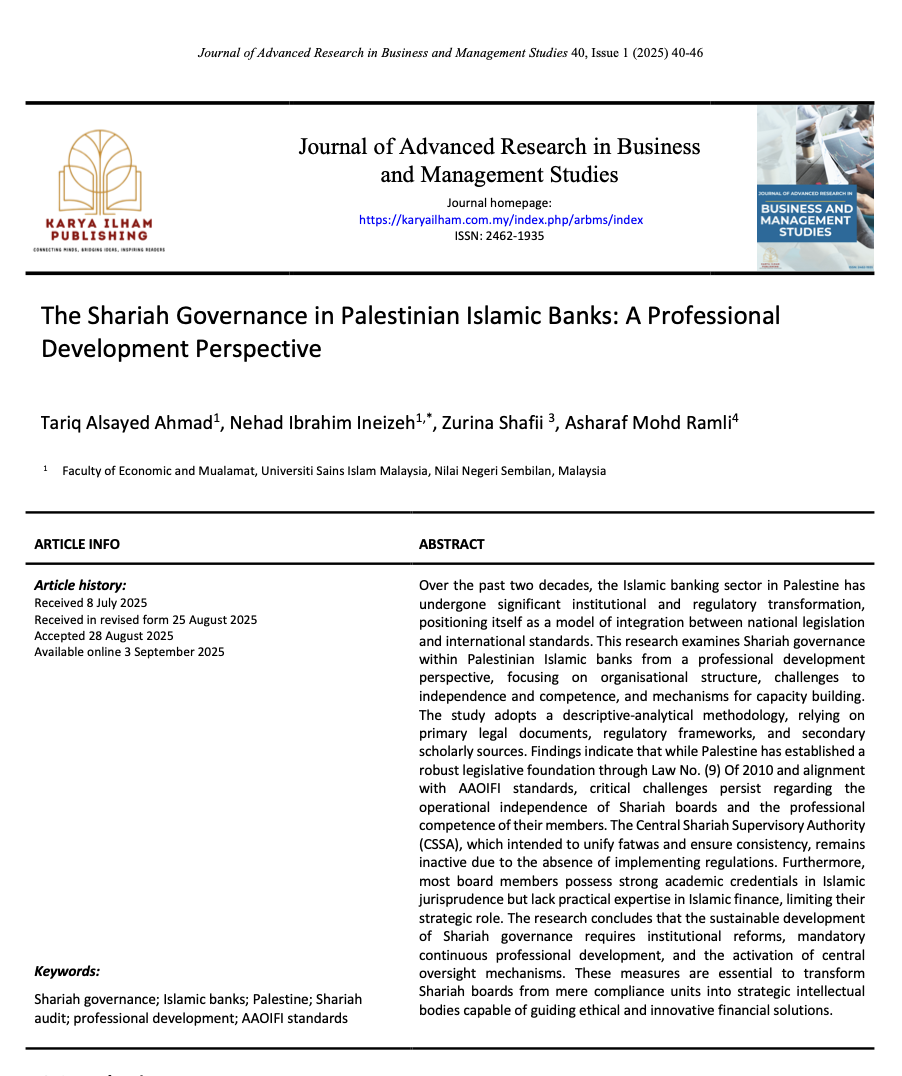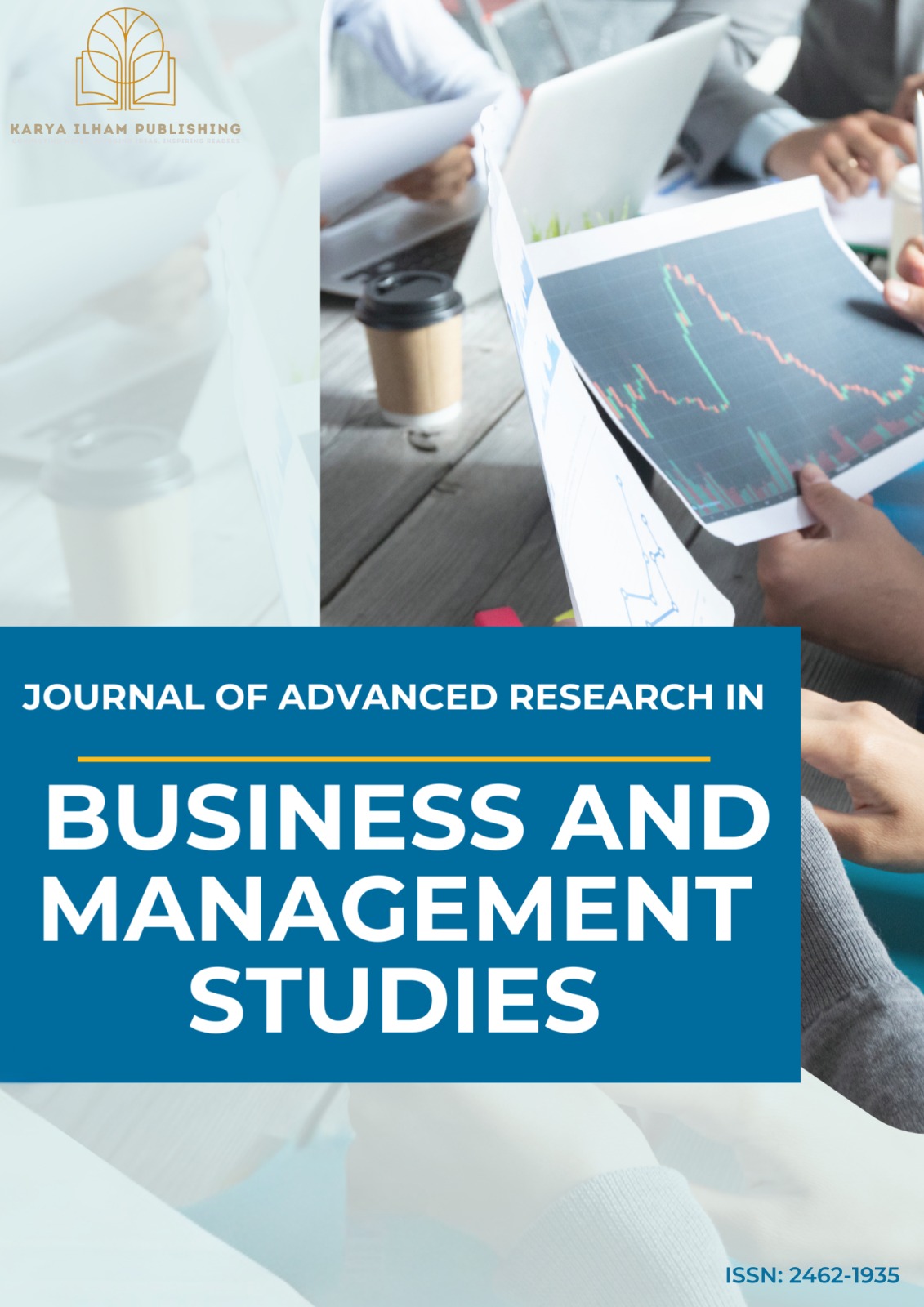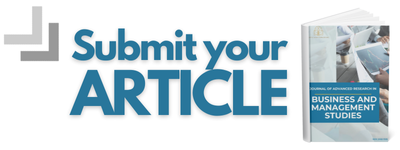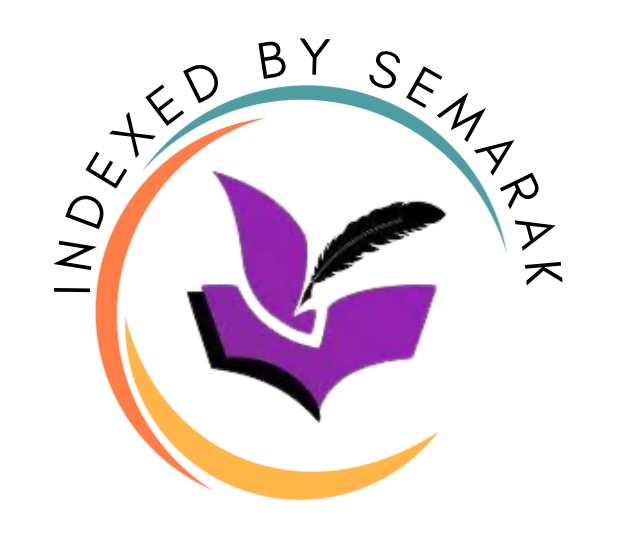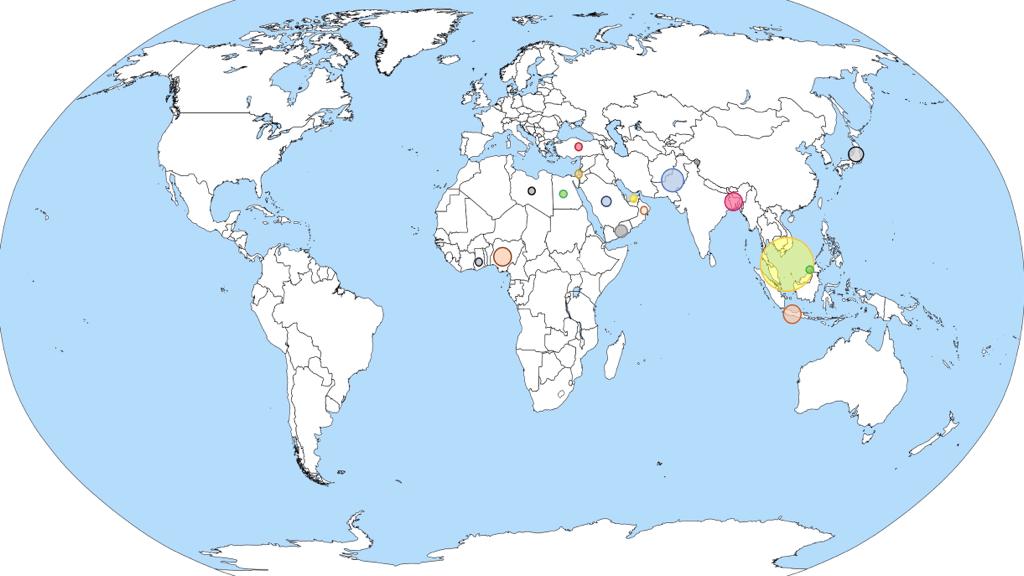The Shariah Governance in Palestinian Islamic Banks: A Professional Development Perspective
DOI:
https://doi.org/10.37934/arbms.40.1.4046Keywords:
Shariah governance, Islamic banks, Palestine, Shariah audit, professional development, AAOIFI standardsAbstract
Over the past two decades, the Islamic banking sector in Palestine has undergone significant institutional and regulatory transformation, positioning itself as a model of integration between national legislation and international standards. This research examines Shariah governance within Palestinian Islamic banks from a professional development perspective, focusing on organisational structure, challenges to independence and competence, and mechanisms for capacity building. The study adopts a descriptive-analytical methodology, relying on primary legal documents, regulatory frameworks, and secondary scholarly sources. Findings indicate that while Palestine has established a robust legislative foundation through Law No. (9) Of 2010 and alignment with AAOIFI standards, critical challenges persist regarding the operational independence of Shariah boards and the professional competence of their members. The Central Shariah Supervisory Authority (CSSA), which intended to unify fatwas and ensure consistency, remains inactive due to the absence of implementing regulations. Furthermore, most board members possess strong academic credentials in Islamic jurisprudence but lack practical expertise in Islamic finance, limiting their strategic role. The research concludes that the sustainable development of Shariah governance requires institutional reforms, mandatory continuous professional development, and the activation of central oversight mechanisms. These measures are essential to transform Shariah boards from mere compliance units into strategic intellectual bodies capable of guiding ethical and innovative financial solutions.
